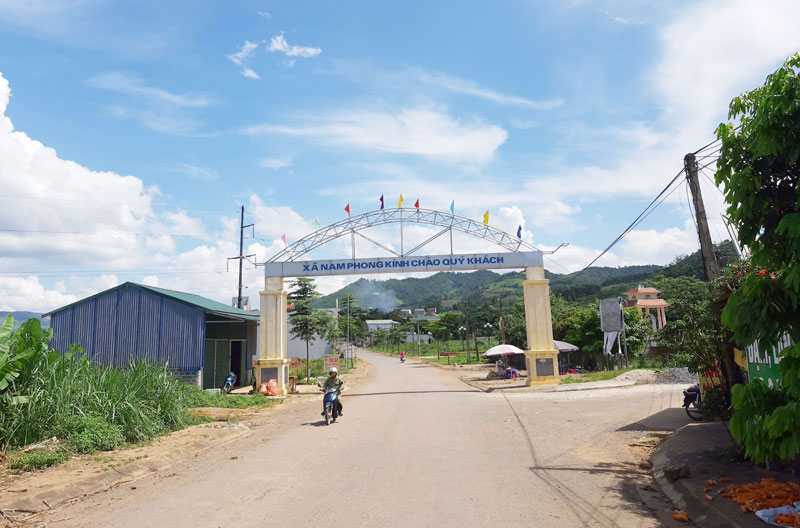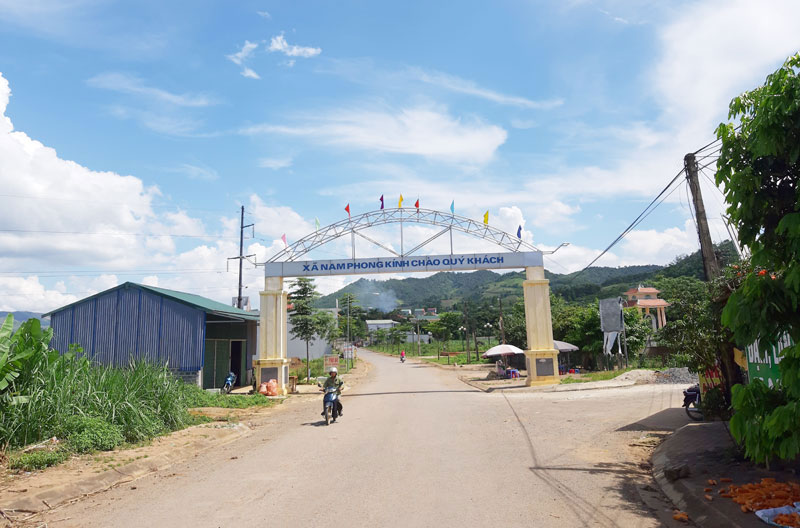
(HBO) – Infrastructure and living conditions in Nam Phong commune, Cao Phong district, have improved very much in the last few years.
Photo: Nam Phong commune’s infrastructure is improved to meet the demand for socio-economic development.
Nam Phong commune’s infrastructure is improved to meet the demand for socio-economic development.
Nam Phong was known as a commune that pioneered crop restructuring with the rice growing area reduced and the sugarcane growing area increased. Planting citrus fruit trees, afforestation, and animal husbandry are new ways for residents to increase their incomes.
Dinh Duc Chinh, chairman of Nam Phong commune People's Committee, said local authorities and people are united and actively building a new life. In 2016, the commune met the criteria to become a new-styled rural area. Since then, the commune has continued to maintain its recognition.
Residents are actively donating land to expand roads. They also keep houses and public work green, clean, and beautiful, creating an increasingly innovative rural look. Locals have donated land to open the road from National Highway 6 to the centre of the commune, and other internal roads. At the beginning of this year, the commune started the construction of a primary school, with an area of 9,400 sq.m in Tram hamlet. As many as 26 households agreed to move to make room for the school. So far, 16 classrooms have been built.
Chinh said that one of the most prominent achievements made in the commune is that it has solved environmental problems well. With support from the State, the commune built a garbage dump and incinerator. The commune established a group of three members who are responsible for collecting garbage twice a week and then carrying the waste to the incinerator for treatment. Along with that, the commune also promoted communication, calling on people to actively participate in environmental protection activities.
By now, the per capita income of the commune has reached 47 million VND/year. The commune’s poor households number has decreased to 13%.
The emulation movement "Hoa Binh joining hands to build new-style rural areas” has been widely spreading, becoming a driving force that motivates the localities to renew rural landscapes and improve the material and spiritual lives of the residents. In this movement, the people play a central role-both as the main implementers and direct beneficiaries of its outcomes.
In response to the global digital revolution, Hoa Binh Newspaper is transforming itself into a modern and multi-platform media hub, blending cutting-edge technology with a restructured newsroom and a new generation of tech-savvy journalists.
Hoa Binh province’s Association of the Elderly recently held a conference to review the project on expanding the inter-generation self-help club model until 2025.
In a move to implement Resolution No. 57-NQ/TW, issued on December 22, 2024 by the Politburo, which targets breakthroughs in science-technology development, innovation, and digital transformation, the Hoa Binh provincial Department of Health has issued a plan to roll out the "Digital Literacy for All” campaign within the local health sector.
An Nghia Commune (Lạc Sơn District) is one of the communes that achieved the tha standard of the national new rural area in 2018. Entering a new development phase, the commune is now trying to meet the criteria for the advanced new rural development. With the strong political will and the public consensus, the commune is gradually overcoming the challenges to reach this goal, aiming for the sustainable development.



